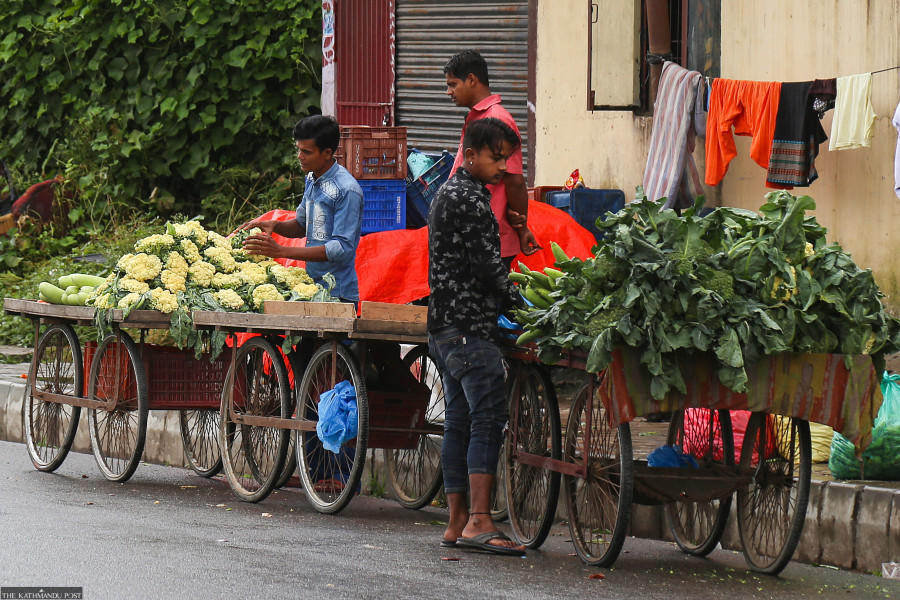Health
Vegetables with excessive amounts of pesticide residue destroyed
Officials had suspended pesticide testing in vegetables for around two months due to lack of funding.
Arjun Poudel
Over the past week, authorities have destroyed vegetables that were found to have contained an excessive amount of hazardous pesticides. The destroyed vegetables include around 100 kg of tomato, 50 kg of cauliflower and a huge quantity of pakauchey saag, a type of Chinese cabbage from the mustard family. Several other green vegetables that exceeded the upper limit of pesticide residue were seized and sent to quarantine, according to the Central Agriculture Laboratory under the Department of Agriculture.
Pakuchey saag was destroyed in Kathmandu, cauliflower in Nepalgunj of Banke and tomato in Kailali, said Srijana Shrestha, plant protection officer at the Central Agriculture Laboratory. “Vegetables that were seized for quarantine were released after the pesticide residue in them declined,” Shrestha said.
Farmers use pesticides to protect crops from insects, weeds, fungi and other pests. According to the World Health Organisation, pesticides can be potentially toxic to humans and can have both acute and chronic health effects depending on the quantity and ways in which a person is exposed to them.
Officials say the use of hazardous pesticides, herbicides, and fertilisers has been on the rise in Nepal in recent years, officials say.
The Department of Agriculture carries out tests for organophosphate and carbamate pesticides in fruits and vegetables on a regular basis from various labs across the country.
There are seven labs that run rapid bioassays of pesticide residue in Nepal—one each in five provinces, Koshi, Madhesh, Bagmati, Gandaki and Sudurpaschim, and two in Lumbini Province.
According to Shrestha, testing of pesticides was halted from July 29 to September 15 due to a lack of budget and testing kits.
Pesticides are commonly used to kill insects, fungi, weeds and diseases that damage plants and crops. Data shows the import of various pesticides—including insecticides, fungicides, bactericides, herbicides, rodenticides, and bio-pesticides—has been growing every year in Nepal. In the fiscal year 2021-22, the country imported over 1135 tonnes of pesticides. There are 17,298 pesticide retailers and 330 pesticide importers in the country.
Doctors say long-term consumption of vegetables and fruits with high levels of pesticides can lead to renal failure, heart and lung diseases, mental health problems and cancer. Consumption of such fruits and vegetables may also affect pregnant women and harm foetuses.




 9.7°C Kathmandu
9.7°C Kathmandu















